The taste of Mam Darwish's tea, brewed over a charcoal fire in the wooded mountains evokes the beauty of the border between the Kurdistan Region of Iraq (KRI) and Iranian Kurdistan. Mam Darwish makes tourists forget the bitterness of life for a while by offering them sweet tea.
Mam Darwish's tea house is located in the orchards of Byara district in Halabja Governorate. A stream of water that runs through the tea house divides it between two countries, Iraq and Iran, where customers from both sides of the border come and sit across from each other to sip a sweet tea and relax.
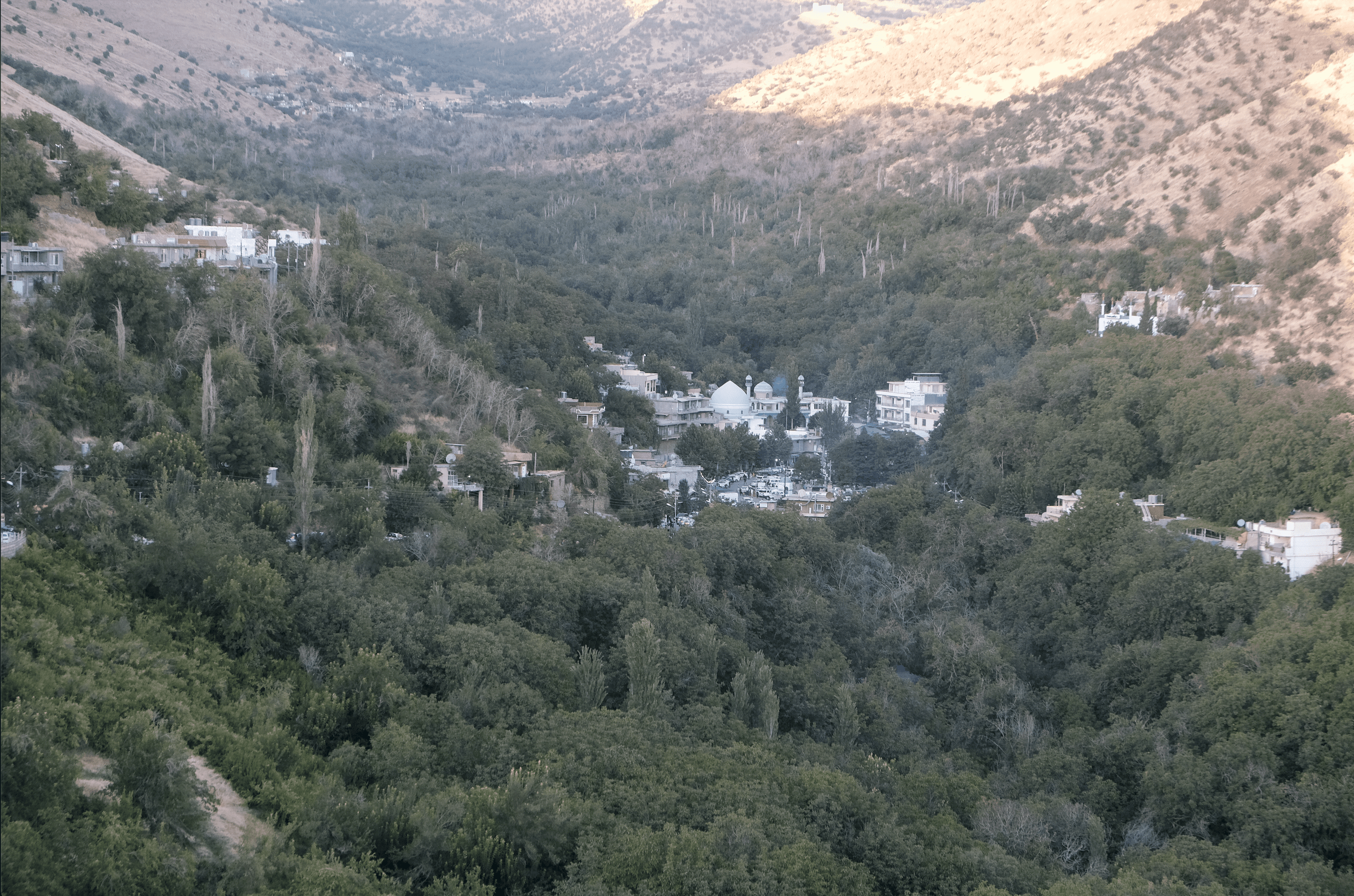
One of the most notable features of the tea house is that tourists from the KRI and Iranian Kurdistan can visit the tea house without visas to drink tea and take photos. It is open daily from 7:00 am to 7:00 pm, serving tea as well as cold beverages in the summer and hot milk in the winter.
“Three years ago, I established this tea house, which sits right on the border between the KRI and Iranian Kurdistan, with only a stream as the dividing line,” Mam Darwish said with pride. “Tourists often inquire whether we accept Iraqi currency or Iranian currency. We accept only Iraqi currency, yet even if our Iranian visitors lack Iraqi currency, we do not charge them; they can enjoy their tea for free, as the value of the Iranian currency makes it a bit expensive for them,” he added.
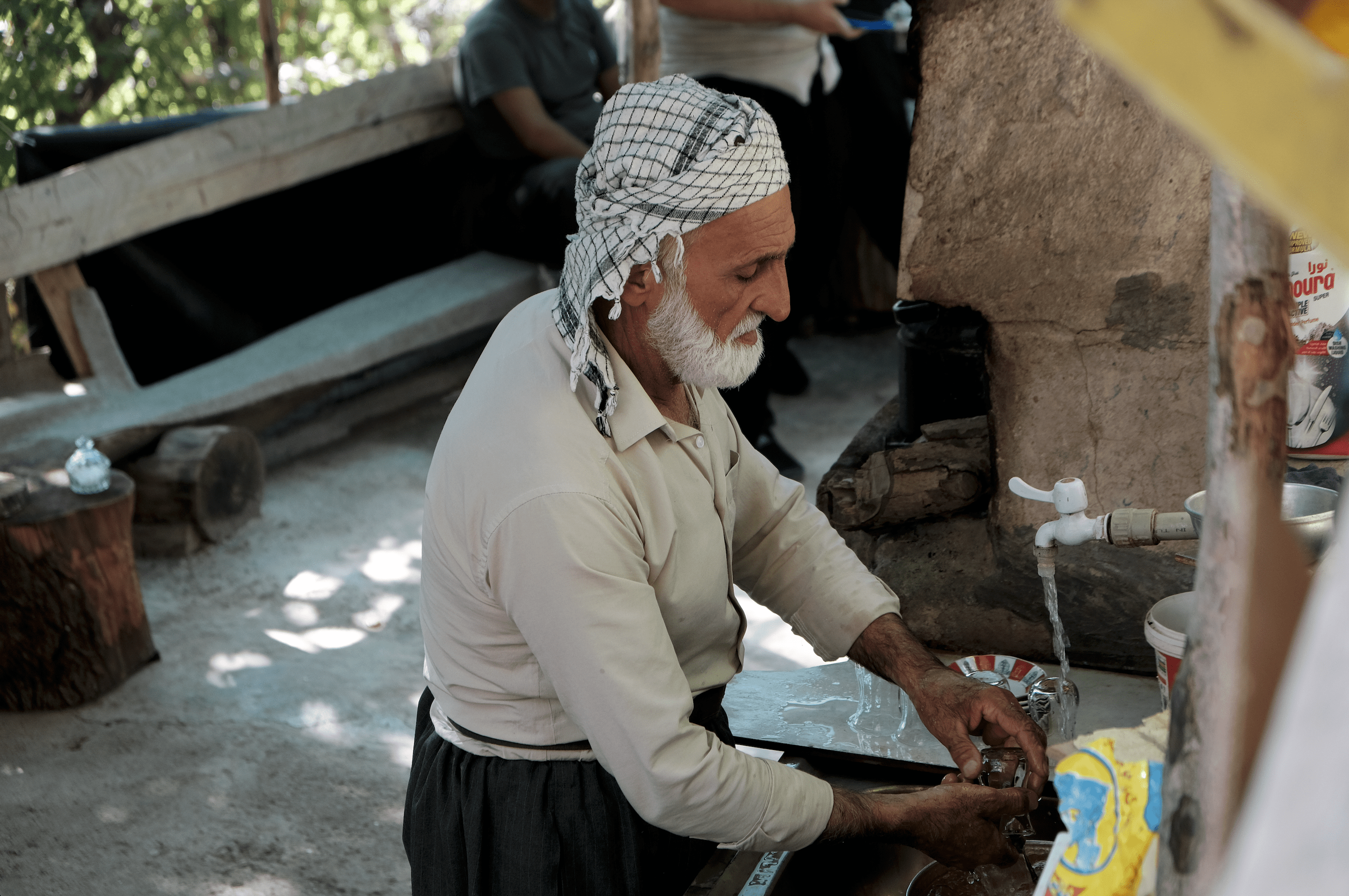
Despite the border that officially separates the people of Byara and Hanagarmala, residents from both sides have been enjoying visa-free visits to share moments of both joy and sorrow since the border was first drawn a century ago.
Mam Darwish's tea house lies in the historical region known as the Hawraman region, which is a mountainous area shared between Iraqi and Iranian Kurdistan, with the majority of the region located in Iran. In 2021, UNESCO added the Iranian area of Hawraman to the World Heritage List.
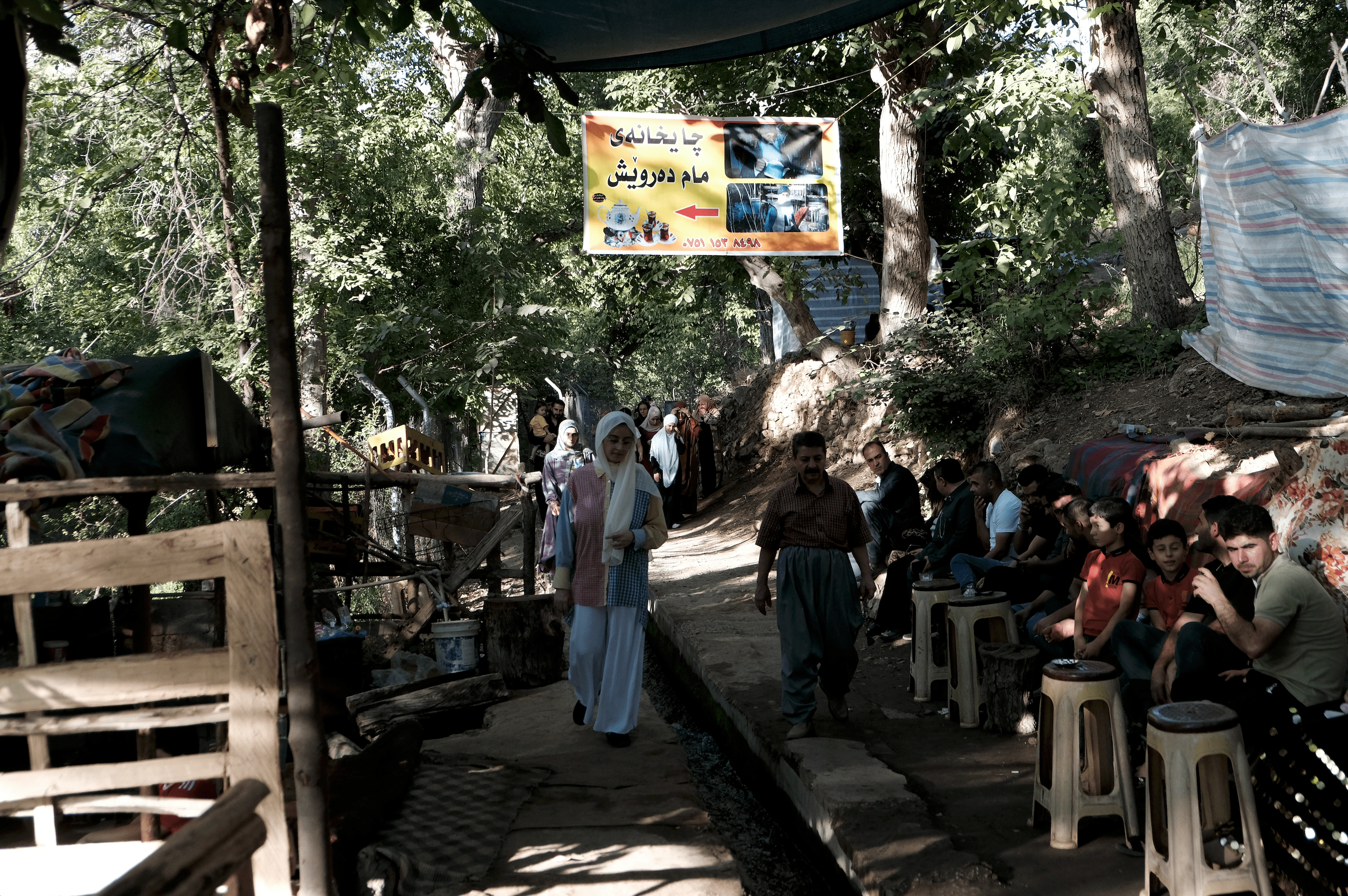
The Hawrami people, a Kurdish tribe dating to around 3000 BC, have inhabited this rugged terrain within the Zagros Mountains for centuries. They speak a distinctive Kurdish dialect and are celebrated for their self-sufficiency, crafting their own clothing, shoes, and tools. The region boasts bountiful walnut, pomegranate, and mulberry trees, annually drawing thousands of visitors to its cultural festivals.
Mam Darwish explained that there have been no security issues for tourists who have visited the tea house thus far, and that border security on both sides has been very cooperative.
“Sometimes tourists from both sides call me ahead of time to see if the tea house is open and if they can come without a problem,” said Mam Darwish.
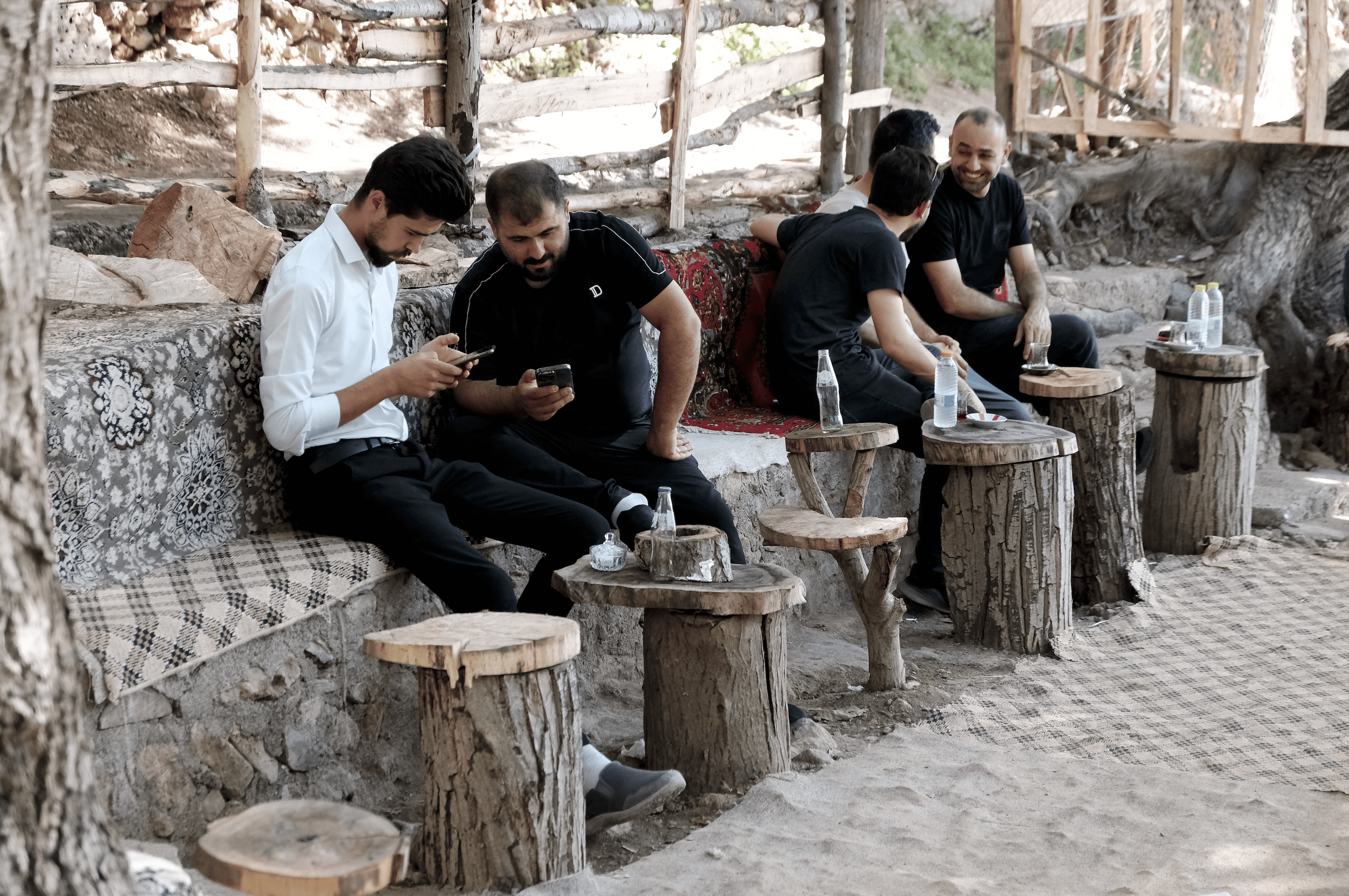
However, when it comes to tea, Kurds from Iraq and Iran have two distinct preferences, according to Mam Darwish. Iraqi Kurds prefer dark and thick tea, while Iranian Kurds prefer light tea.
As she sipped hot tea, Truska Ali, 23, of Sulaymaniyah city, KRI, told Kurdistan Chronicle that she was visiting Mam Darwish's tea house for the fifth time, previously with her family and now with her friends.
“Everything is beautiful here, the weather and landscape. It is it is a pleasant feeling. You can cross the border and enter the territory of Eastern Kurdistan (northwestern Iran) without any difficulties or obstacles,” she said.
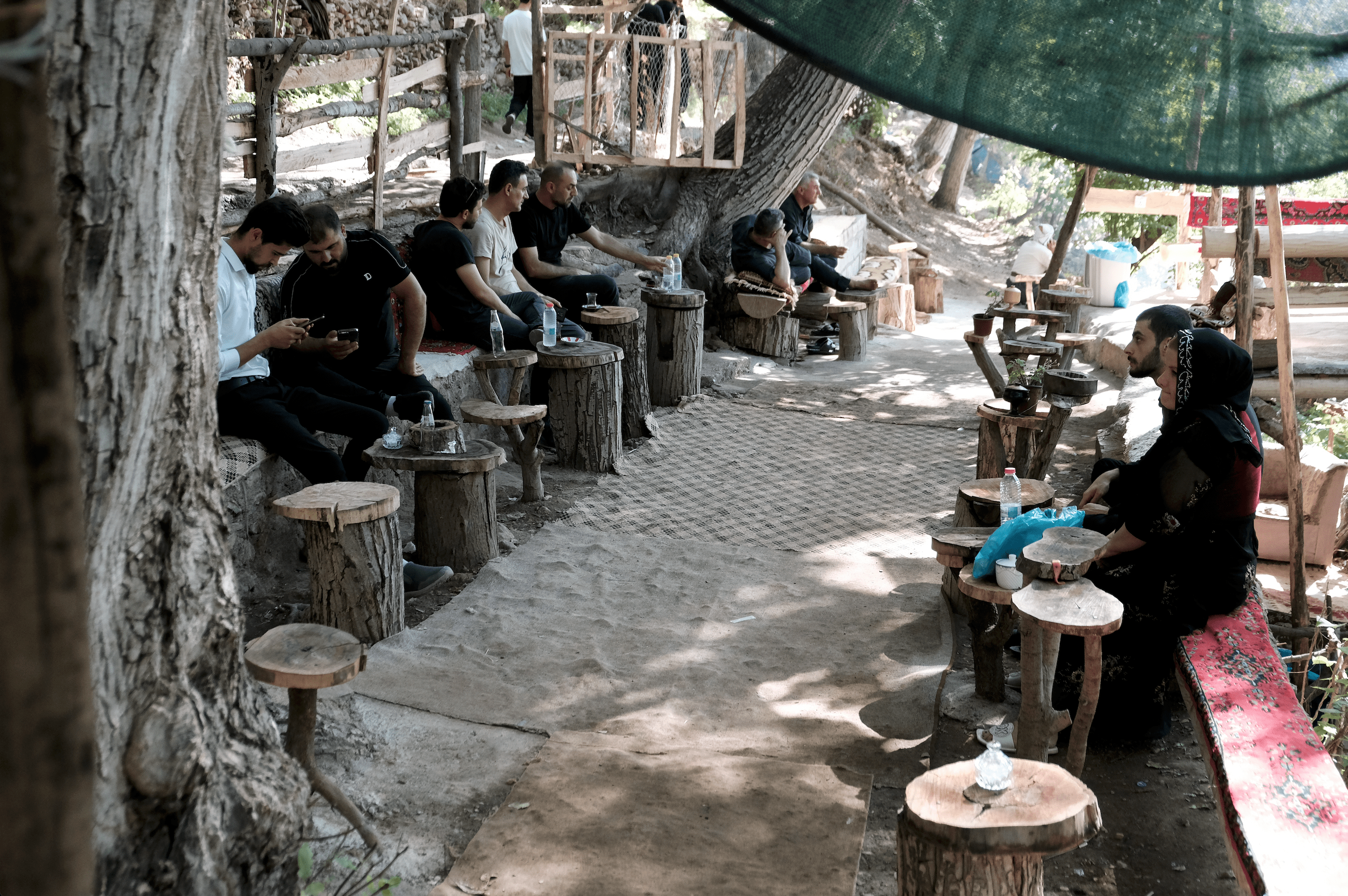
Sipan Hajji, 30, a Kurdish refugee from Syria living in the KRI, was sitting at the tea house with his friends. He said what drew him to the place was the beauty of the area and the simplicity of the tea house, which is entirely made of wood.
“When you see these scenes, you feel that Kurdistan is very beautiful and has beautiful nature,” said Sipan.
While washing the tea cups, Mam Darwish expressed his delight that his tea house is now well known on both sides of the border. He stated that he intends to expand his business and open a restaurant next year, so that tourists can enjoy a nice breakfast that includes locally made cheese, honey, yogurt, and bread.
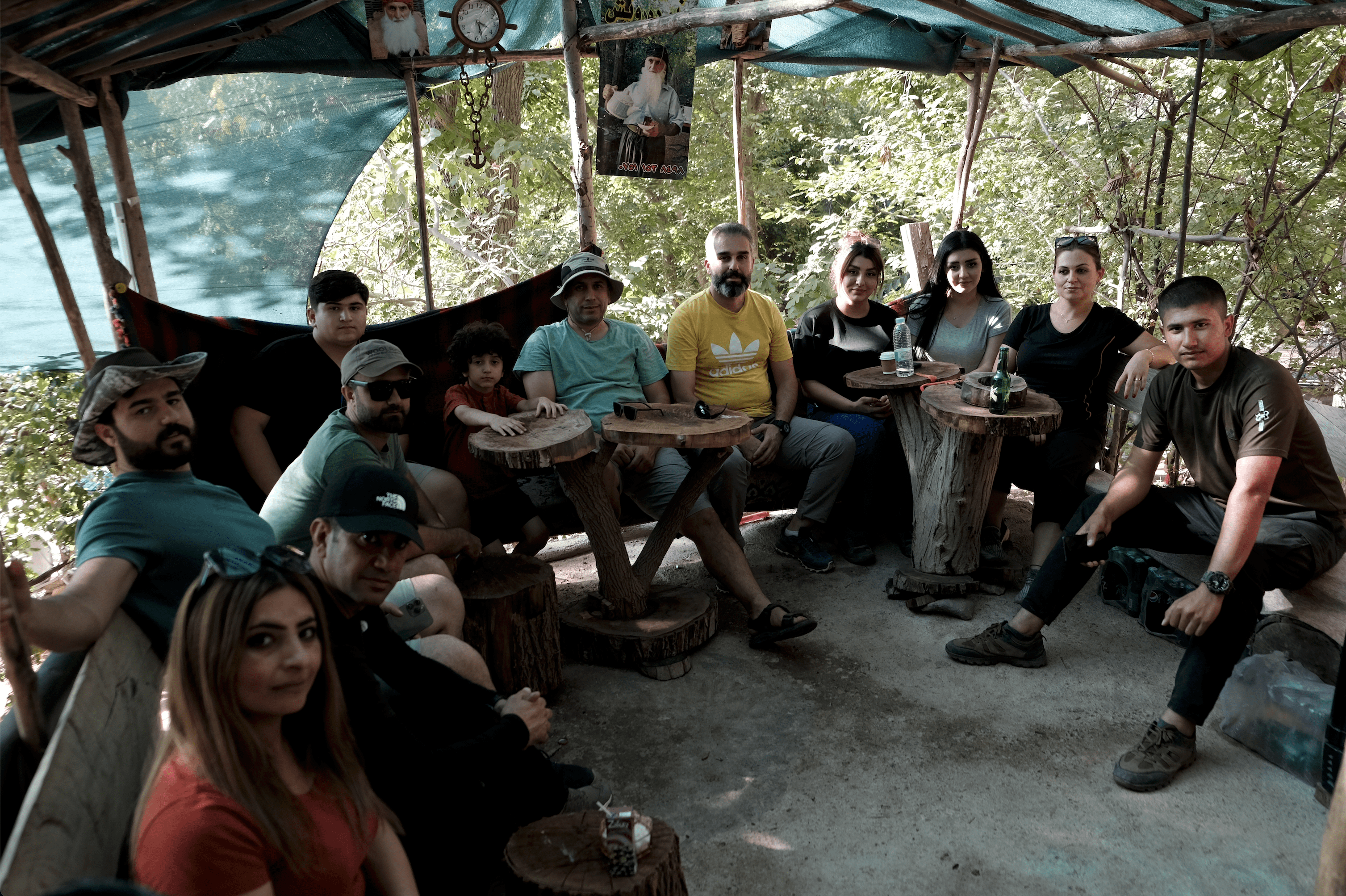
Omar Aziz is a journalist and videographer from Halabja, specializing in Kurdish media since 2012. With a media degree and a passion for storytelling, he captures impactful moments and sheds light on important issues through his work.

